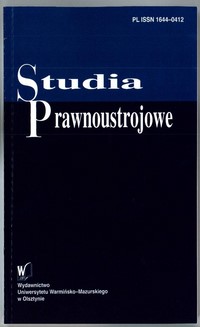Selekcja negatywna embrionów in vitro w świetle przepisów prawa polskiego, warunkujących stosowanie preimplantacyjnej diagnostyki genetycznej
Negative selection of in vitro embryos on the grounds of Polish law conditioning the use of preimplantation genetic diagnosis
Author(s): Ewelina WojewodaSubject(s): Criminal Law, Health and medicine and law
Published by: Wydawnictwo Uniwersytetu Warmińsko-Mazurskiego w Olsztynie
Keywords: medical criminal law; preimplantation genetic diagnosis; PGD screening out; negative selection of embryos; in vitro fertilization; medically assisted procreation;
Summary/Abstract: The aim of this paper is to indicate the controversies and dilemmas correlated with the negative selection of in vitro embryos and to analyze the normative regulations concerning the use of preimplantation genetic diagnosis in the light of the provisions of the Act on Infertility Treatment. Preimplantation genetic diagnosis (PGD) of embryos is a huge development that is linked to the in vitro fertilization procedure and allows embryo selection to be carried out. It is allowed to use PGD only for medical indications in Polish law. Therefore, the legislator allows the use of this procedure only to detect possible genetic defects before embryo transfer. The identification of chromosomal aberrations or genetic mutations leads to resignation from the transfer of embryos burdened with genetic defects. The use of PGD to make a positive selection of embryos is strictly prohibited and threatened with criminal liability.
Journal: Studia Prawnoustrojowe
- Issue Year: 2022
- Issue No: 57
- Page Range: 567-582
- Page Count: 16
- Language: Polish

